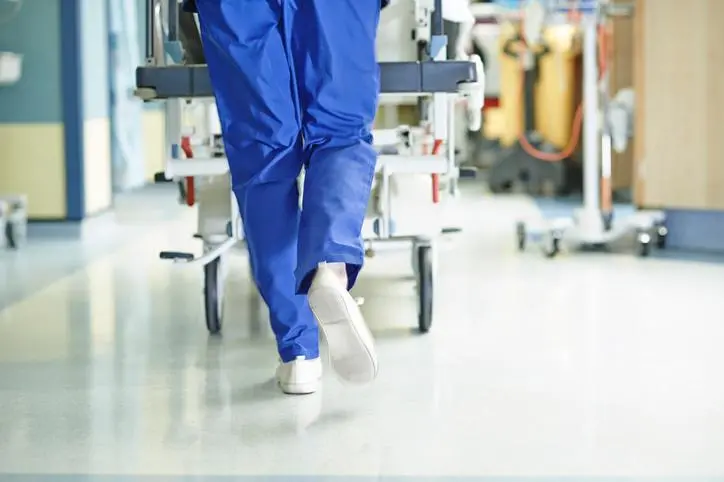PHOTO
Bahrain - A proposal to increase incentives for medics in Bahrain’s emergency departments has been tabled by a national body representing the country’s healthcare staff.
The idea has been tabled by the Bahrain Medical Society (BMS), which hopes to encourage more young doctors to enter the field of emergency medicine.
It also hopes that improving staff benefits will ensure higher retention rates.
“We want to encourage newly graduated residents to join emergency medicine,” BMS president Dr Ghada Al Qasim told the GDN.
“We have also asked for more incentives and training for paramedics, nurses and technicians.
“The emergency medics work in shifts until they become consultants and they need incentives to keep them attracted to the job and to become leaders in emergency medicine – financial, promotions and titles.
“We need to give them proper training. We are currently sending them for Saudi, Canadian and European accreditations – we want to push more people to take up this training.
“Every emergency department should have at least two qualified consultants on each shift, plus a senior and chief resident along with junior residents to manage overcrowding.”
The BMS also wants to ensure emergency departments in the public sector comply with international guidelines, in addition to overhauling the triage system to tackle overcrowding – with emergency departments often the first point of call for patients even if they do not require urgent care.
Its proposals were agreed following a Bahrain Emergency Medical Conference, which was held for the first time last month and is set to become an annual event.
They have now been referred to the Supreme Council for Health.
Dr Al Qasim said the BMS was also hoping for increased communication between emergency departments at Bahrain’s three main state-run hospitals – Salmaniya Medical Complex (SMC), King Hamad University Hospital (KHUH) and BDF Hospital.
“Communication between emergency departments at public hospitals occurs mostly when patients are transferred,” she explained.
“What we are looking to have is a more comprehensive system that can help physicians in the emergency departments to work together on guidelines and pathways.
“The system should encompass the three stages – pre-hospital care, including the ambulance and paramedic team, the emergency care and the in-hospital care.
“Emergency should be more a system than a department or medicine and it cannot work alone. It has to be connected and must follow the same guidelines, be it at SMC, KHUH or the BDF Hospital.
“One hospital’s emergency department should not be regarded as better than another. All should function the same, matching international standards.”
Meanwhile, she said a unified approach to triage in each public health facility would help reduce overcrowding at emergency units.
“This will help filter patients based on the emergency of their condition,” she said.
The GDN last month reported plans for satellite clinics with emergency physicians at health centres.
That initiative aims to reduce the burden on SMC, where emergency medics deal with up to 1,000 patients a day – the majority of whom are non-emergency cases.
Health Ministry Under-Secretary Dr Waleed Al Manea told the GDN the biggest challenge at SMC was patients walking into the accident and emergency department with minor ailments.
The BMS is also planning a public awareness campaign to tackle the issue.
“People should not be going to emergency when they have a sore throat or a red eye,” said Dr Al Qasim.
“Emergency is for a life- threatening condition.
“For less severe conditions, they should see family physicians at health centres.
“This will reduce overcrowding at emergency departments and will also improve services for patients.
Drive
“The campaign will also focus on prevention – like the use of seat-belts and helmets, which would limit people coming to emergency departments.”
The GDN has repeatedly reported on lengthy delays at SMC’s accident and emergency department, as well as bed shortages at the facility.
At one point in March the unit was operating at more than twice its capacity, with just two consultant doctors on duty.
© Copyright 2019 www.gdnonline.com
Copyright 2019 Al Hilal Publishing and Marketing Group Provided by SyndiGate Media Inc. (Syndigate.info).





















